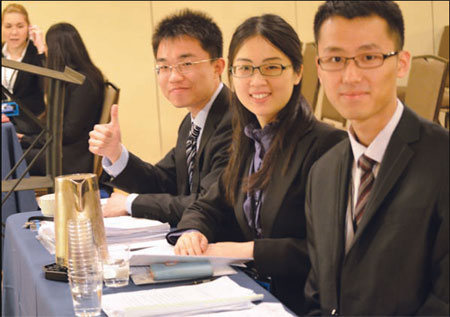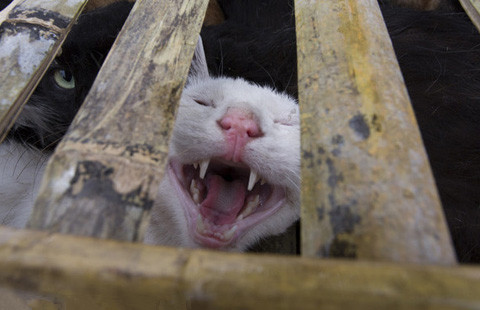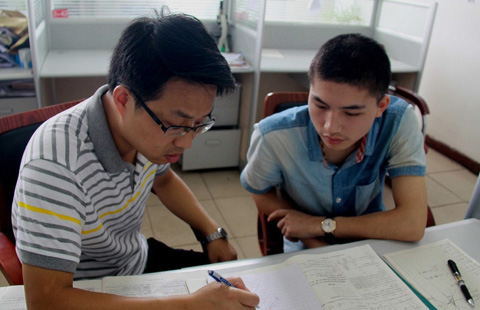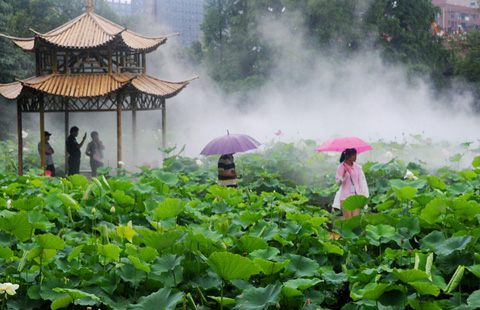Chinese schools vie in moot court
Updated: 2014-04-08 11:21
By Liu Chang in Washington (China Daily USA)
|
||||||||
Students from five Chinese university law schools are among about 400 law school students participating in the world's largest moot court competition being held in Washington.
Preliminary rounds got underway on Monday in the 2014 White & Case International Rounds of the Philip C. Jessup International Law Moot Court Competition at the Capital Hilton Hotel. Participants from more than 83 countries will compete against each other through Friday and meet in the championship round on Saturday.
The competition simulates a fictional dispute between countries before the International Court of Justice, the judicial organ of the United Nations.
This year's moot court topic is on the conflict between maritime development and conservation, criminal jurisdiction and maritime salvage rights.
Forty Chinese universities took part in regional competitions and five universities advanced to the preliminary rounds in Washington. They are China Foreign Affairs University, Renmin University of China, the University of International Business and Economics, Wuhan University Law School and Xiamen University.
Lesley Benn, executive director of the International Law Students Association, said that the Chinese national rounds have grown considerably. "China has been a country that has more growth than anywhere else in the past five to 10 years. Chinese teams are very serious and competitive," she said.
On Monday, law students from the University of International Business and Economics faced the law students from the University of Cyprus.
Yongmin Bian, director of the international law department at the University of International Business and Economics, said that when rivals are American teams whose native language is English, she feels the pressure.
"Fortunately, nowadays Chinese college students' English proficiency has improved a lot," Bian said. "English speaking capability is a minimum requirement for participation."
Aristoteles Constantinides, assistant professor of international law and human rights at Cyrus University, said his team started to prepare for the competition last September. He listed key abilities a team in the competition needs to display, including excellent argumentation preparation, excellent command of English for non-native English speakers, flexibility to change the argument to adapt and experience.
The brainchild of professor Richard R. Baxter at Harvard Law School, the Philip C. Jessup International Law Moot Court Competition was created by Baxter and professor Stephen M. Schwebel, who later became president of the International Court of Justice.
The Jessup Competition is named after the Honorable Philip C. Jessup, who was a member of the International Court of Justice (1961-1970).
The first Jessup Competition was held at Harvard University in 1960, with only Harvard law students. Since then it has been held annually with participants from around the world.
Panelists judging the final round include Judge Julia Sebutinde, who was presiding judge of Trial Chamber II of the Special Court for Sierra Leone in 2007, 2008 and from 2010 to 2011 and Judge Dalveer Bhandari, who was a judge in the higher Indian Judiciary for more than two decades.
The competition is sponsored by White & Case LLP International Law Firm and administered by the International Law Students Association, formerly as the Association of Student International Law Societies.
changliu@chinadailyusa.com
|
Participants from the School of Law of the Beijing-based University of International Business and Economics are ready for a preliminary round against the University of Cyprus in the world's largest moot court competition in Washington on April 7. Liu Chang / China Daily |
(China Daily USA 04/08/2014 page2)

 Move to domestic software pressures foreign companies
Move to domestic software pressures foreign companies
 China navy is 'highlight'
China navy is 'highlight'
 Chinese navy in Hawaii for joint exercise
Chinese navy in Hawaii for joint exercise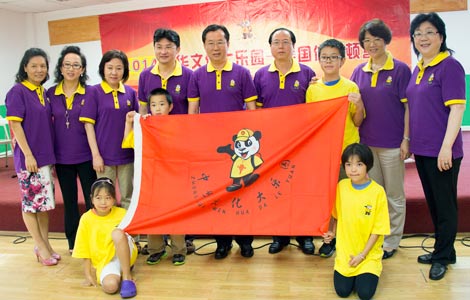
 Culture camp delivers authentic China
Culture camp delivers authentic China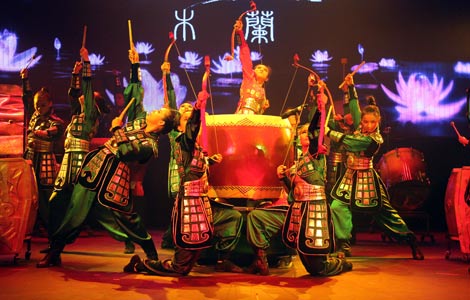
 Ancient Chinese folktale returns to New York City
Ancient Chinese folktale returns to New York City
 US admiral tours Chinese warship
US admiral tours Chinese warship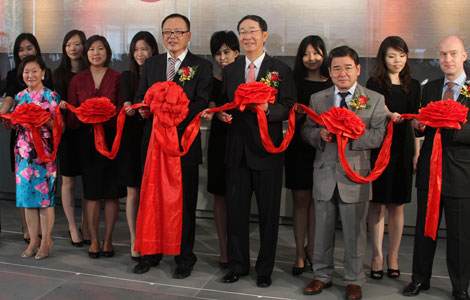
 Bank of China opens branch in Queens
Bank of China opens branch in Queens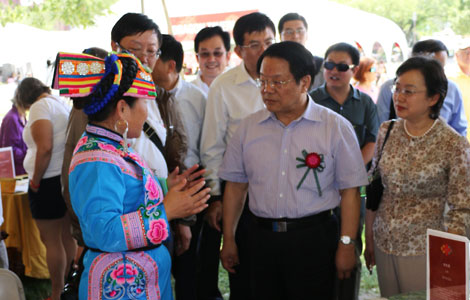
 Minister: Culture the strongest bond linking China, US
Minister: Culture the strongest bond linking China, US
Most Viewed
Editor's Picks

|

|

|

|

|

|
Today's Top News
Top-level general expelled for graft
China says no evidence of pet link
US sends 300 more troops to Iraq
Palace Museum feeling the squeeze of visitors
Slower CPC membership growth reflects stricter recruitment
US business-jet company awaits green light to operate in China
Move to domestic software pressures foreign companies
Bensonhurst becomes Brooklyn's second Chinatown
US Weekly

|

|
